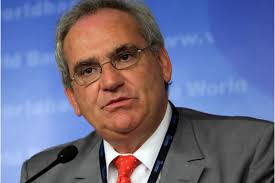The International Finance Corporation (IFC), the private sector lending arm of the World Bank Group, today announced a new $1 billion debt financing for Indorama Eleme Fertilizer & Chemicals Limited, Nigeria.
The fund is for the construction of a new fertilizer line that will expand the company’s capacity of urea fertilizer to more than 2.8 million tons.
According to a statement issued by the Breton Woods institution on the financing assistance, the IFC will directly lend $100 million and mobilize an additional $850 million of loans from other developmental financial institutions and commercial banks.
In addition, the bank stated that another $50 million in financing will be available from IFC’s Managed Co-Lending Portfolio Program while European Investment Bank, YES BANK, CDC Group PLC, African Development Bank, Bank of Baroda and Standard Bank will be joining IFC as Joint Mandated Lead Arrangers (including as lenders).
Also supporting the financing are, Standard Chartered Bank; Bangkok Bank; FMO; DEG; PIDG company, the Emerging Africa Infrastructure Fund; PROPARCO; ICICI Bank Limited; and Citibank. The large number of participating banks signals a strong endorsement of the project, Indorama, and the country by the syndicated loan market lending though a blend of IFC A and B Loans and uncovered facilities.
Commenting on the funding support, Indorama Africa’s Chief Executive Officer, Manish Mundra, said: “Nigeria has enormous potential to achieve agricultural self-sufficiency and food security which is evident from the multi-fold increase in domestic fertilizer consumption after the start of Indorama’s first plant. Nigeria has also become a major hub for urea exports.
“With Line 2, we aim to further expand our ability to provide competitively priced and high-quality fertilizer to farmers in West Africa and across the globe. Indorama is looking forward to continue contributing to Nigeria’s economic development”, Mundra added.
Similarly, the Group Vice Chairman, Indorama Corporation, Amit Lohia, was quoted as saying that “this financing reflects our strong partnership with IFC over a span of almost three decades. We are extremely pleased to bring our financial partners to Nigeria on the back of this strong partnership.”
In his remarks, IFC Vice President for Middle East and Africa, Sérgio Pimenta, explained that “IFC aims to support Nigeria’s efforts to strengthen its manufacturing base and improve stability of its financial system through greater foreign exchange earnings from exports. With Indorama Eleme, IFC is also a partner in helping farmers in West Africa increase their food production and incomes.”
Significant amounts of natural gas are wasted in Nigeria due to gas flaring and analysts believe that this intervention will help in reducing the rate of flared gas and improved utilization of gas for downstream chemical industries such as fertilizer helps reduce gas flaring, a contributor to greenhouse gas emissions associated with climate change.
The World Bank estimates that over the past three years, the country has flared an average of 750 million cubic feet per day of associated gas.






